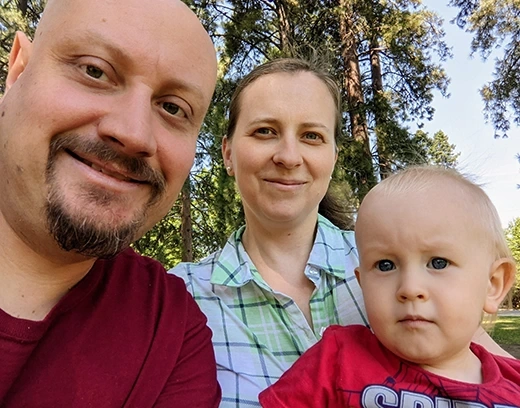Exploring the Different Types of Family Visas | Passage Law

Family-Based Immigration: Understanding the Various Family Visas for Reuniting in the United States
Immigrating to the United States can be a complex process, especially when it involves reuniting with family members. The U.S. Citizenship and Immigration Services (USCIS) offers several family-based visas to help facilitate this process. Understanding the different types of family visas is important for ensuring that you select the right one for your needs. In this guide, we will explore twenty different family visas, their purposes, and the details related to each. If you need professional assistance, a family immigration lawyer can be invaluable in dealing with these problems.
1. Immediate Relative Visas (IR)
Purpose: These visas are for immediate relatives of U.S. citizens. There is no annual limit on the number of immigrants in this category.
- IR-1 Visa (Spouse of a U.S. Citizen): This visa allows U.S. citizens to bring their foreign spouses to the U.S. The spouse receives permanent resident status upon arrival, granting them the right to live and work in the United States. This visa helps couples maintain their marriage-related relationship without the stress of prolonged separation.
- The IR-2 Visa, which grants unmarried children under 21 years old, U.S.): This visa is for unmarried children under 21 years of age of U.S. citizens. It ensures that children can join their U.S. citizen parents in the United States, offering them the opportunity to grow up in a stable family environment. The child will also receive permanent resident status upon entry.
- IR-3 Visa (Orphan Adopted Abroad by a U.S. Citizen): For orphans adopted abroad by U.S. citizens. This visa facilitates the legal process for U.S. citizens who adopt foreign-born orphans, allowing them to bring their adopted child to the United States. It is important for ensuring the child’s integration into the family and accessing the benefits of U.S. residency.
- IR-4 Visa (Orphan to be Adopted in the U.S. by a U.S. Citizen): For orphans to be adopted in the U.S. by a U.S. citizen. This visa is designed for situations where the adoption is to be finalized in the United States. It allows the child to enter the U.S. and complete the adoption process, ensuring legal compliance and safeguarding the child’s welfare.
- IR-5 Visa (Parent of a U.S. Citizen who is at least 21 years old): This visa allows U.S. citizens to bring their parents to live in the U.S. It provides a chance for family reunification, enabling aging parents to live with their children and receive care and support. This visa develops strong family bonds and ensures that parents are not left alone in their later years.
2. Family Preference Immigrant Visas (F)

Purpose: These visas are for specific, more distant family relationships with a U.S. citizen and some designated connections to a lawful permanent resident (LPR). There are annual numerical limits for these visas.
- F1 Visa (Family First Preference): For unmarried sons and daughters of U.S. citizens, and their minor children. This visa category helps older children of U.S. citizens who are no longer minors to reunite with their families in the United States. It allows them to establish their lives in the U.S. and potentially bring their minor children along.
- F2A Visa (Family Second Preference): For spouses and minor children of Lawful Permanent Residents. This visa category ensures that the immediate family members of LPRs can join them in the United States, providing stability and support. It is essential for maintaining family unity and ensuring the well-being of children and spouses.
- F2B Visa (Family Second Preference): For unmarried sons and daughters (21 years of age and older) of Lawful Permanent Residents. This visa allows older children of LPRs to immigrate to the United States, offering them the opportunity to be with their families and explore their personal and professional goals in the U.S.
- F3 Visa (Family Third Preference): For married sons and daughters of U.S. citizens, and their spouses and minor children. This visa category supports the immigration of married children of U.S. citizens, enabling them to bring their immediate family members and establish a new life in the United States. It helps to maintain extended family connections.
- F4 Visa (Family Fourth Preference): For brothers and sisters of U.S. citizens, as well as their partners and minor offspring, as long as the Americans are at least 21 years old. This visa develops sibling relationships by allowing U.S. citizens to bring their brothers and sisters to the U.S. It also supports the immigration of their spouses and minor children, ensuring family cohesion.
3. K Visas

Purpose: These visas are designed to allow the spouse or fiancé(e) of a U.S. citizen to enter the United States.
- K-1 Visa (Fiancé(e) of U.S. Citizen): This visa allows a foreign fiancé(e) to enter the U.S. to marry their U.S. citizen petitioner within 90 days. It facilitates the marriage process by allowing the couple to be together during the required period leading up to their wedding. The foreign spouse may petition for status adjustment to become a permanent resident after being married.
- K-2 Visa (Child of K-1 Visa Holder): This visa is for the children of K-1 visa holders. It enables the children of foreign fiancé(e)s to accompany their parent to the United States and ensures that the family remains together during the marriage and subsequent adjustment of status process.
- K-3 Visa (Spouse of a U.S. Citizen Awaiting Immigration Visa Processing): This visa allows the foreign spouse of a U.S. citizen to enter the U.S. while awaiting the processing of their immigrant visa. It provides a temporary solution to long separation periods, allowing the couple to live together while the immigrant visa application is being processed.
- K-4 Visa (Child of K-3 Visa Holder): This visa is for the children of K-3 visa holders. It ensures that the children of foreign spouses can join their parents in the United States, maintaining family unity during the visa processing period.
4. V Visas
Purpose: These visas are available to spouses and minor children of Lawful Permanent Residents to reunite families who have been separated for a long time.
- V-1 Visa (Spouse of a Lawful Permanent Resident): For spouses of LPRs. This visa allows spouses of LPRs to enter and live in the U.S. while they wait for the processing of their application for an immigration visa. It minimizes prolonged separations and supports family stability.
- V-2 Visa (Child of a Lawful Permanent Resident): For unmarried children under 21 years of age of LPRs. This visa category ensures that minor children of LPRs can join their parents in the United States, promoting family unity and the well-being of the children.
- V-3 Visa (Derivative of V-1 or V-2): For children of V-1 or V-2 visa holders. It allows the children of V-1 or V-2 visa holders to join their parents in the U.S., ensuring that families remain together during the immigration process.
The Importance of Legal Assistance
Dealing with the complexities of family immigration can be difficult. A family based immigration lawyer can provide invaluable assistance by ensuring all paperwork is correctly completed, deadlines are met, and legal requirements are fulfilled. Whether you are dealing with immigration and family law issues or need guidance on selecting the right visa, an experienced family immigration attorney can help you avoid common pitfalls and simplify the process.
Choosing the Right Family Visa
The process of choosing the right family visa depends on the specific relationship between the U.S. petitioner and the foreign relative. For instance, the process and requirements for a spouse visa differ greatly from those for a sibling visa. It’s essential to understand these differences and consult with a family and immigration lawyer to ensure you are applying for the correct visa.
The Role of an Immigration Lawyer
An immigration lawyer family can offer personalized advice based on your unique circumstances. They can assist with:
- Filing Petitions: Ensuring that all necessary forms and supporting documents are accurately completed and submitted.
- Interview Preparation: Helping applicants prepare for interviews with USCIS or consular officers.
- Appeals and Waivers: Assisting with appeals if a visa application is denied and helping to obtain waivers for certain ineligibilities.
- Legal Representation: Representing applicants in legal proceedings related to their immigration status.
Why Choose Passage Law?
At Passage Law, we have a team of dedicated family immigration lawyers near you who specialize in immigration family law. We understand the emotional and legal complexities involved in family immigration and are committed to reuniting families as effectively and smoothly as possible. Our attorneys are experienced in handling a wide range of family-based immigration cases and are ready to assist you at every step.
Whether you need a family immigration attorney near you to help with immediate relative visas, family preference visas, or other family-based visas, our team is here to provide expert guidance and support. Contact us today to learn how we can help you understand the family immigration process and reunite with your loved ones in the USA. Consult us.
